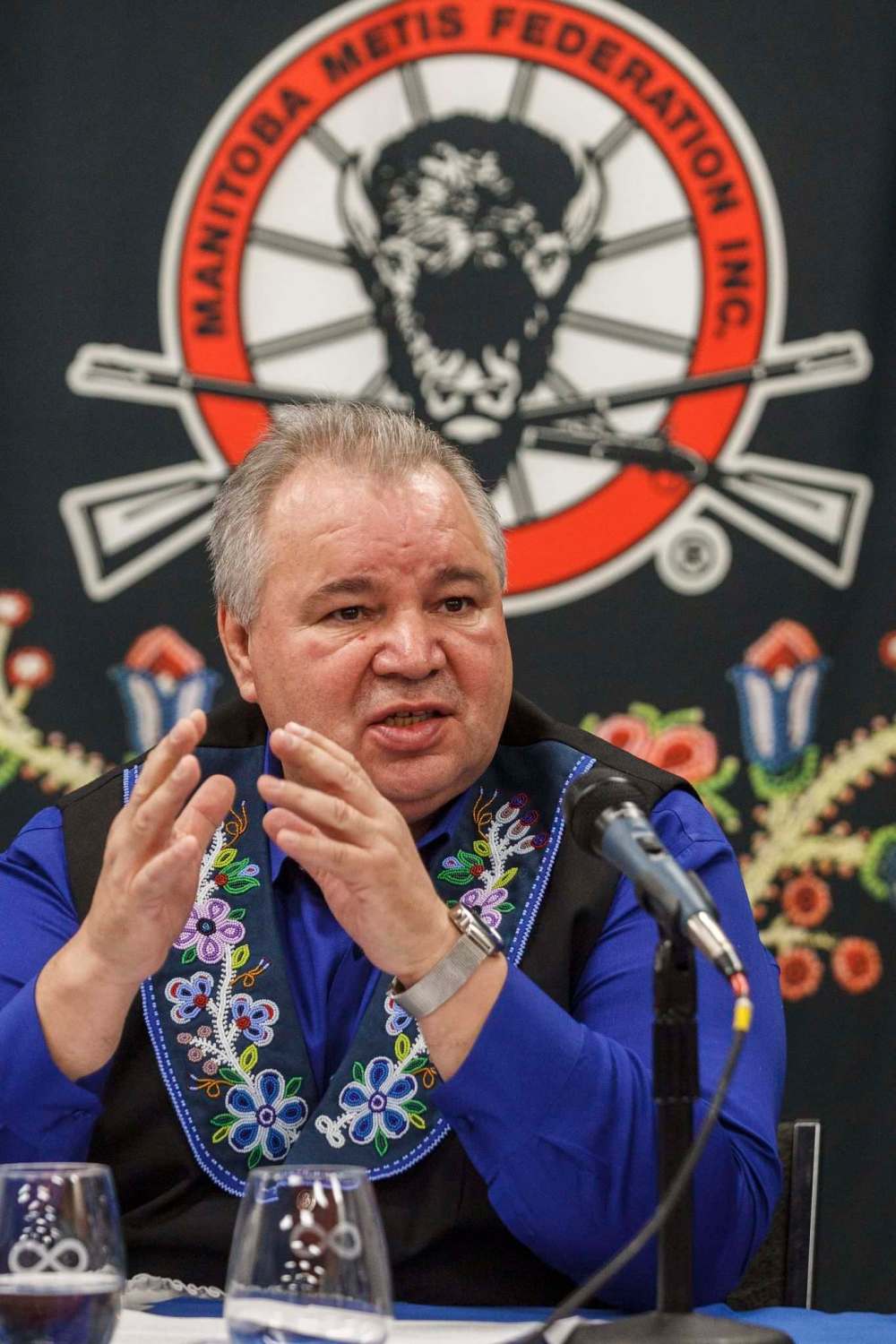Fish co-op concept in guppy stage, but has big goals
About 100 commercial fish harvesters have met with co-op officials
Advertisement
Read this article for free:
or
Already have an account? Log in here »
We need your support!
Local journalism needs your support!
As we navigate through unprecedented times, our journalists are working harder than ever to bring you the latest local updates to keep you safe and informed.
Now, more than ever, we need your support.
Starting at $15.99 plus taxes every four weeks you can access your Brandon Sun online and full access to all content as it appears on our website.
Subscribe Nowor call circulation directly at (204) 727-0527.
Your pledge helps to ensure we provide the news that matters most to your community!
To continue reading, please subscribe:
Add Brandon Sun access to your Free Press subscription for only an additional
$1 for the first 4 weeks*
*Your next subscription payment will increase by $1.00 and you will be charged $20.00 plus GST for four weeks. After four weeks, your payment will increase to $24.00 plus GST every four weeks.
Read unlimited articles for free today:
or
Already have an account? Log in here »
Hey there, time traveller!
This article was published 20/04/2018 (2743 days ago), so information in it may no longer be current.
Manitoba fish harvesters are setting up Canada’s next big co-op to market their product.
About 100 commercial fish harvesters met in Winnipeg this week with co-op officials, who discussed how they can form a co-operative.
A seven-person steering committee has been struck to put the co-op together. Legal counsel from Taylor McCaffrey also was on hand to help with the business model.

“This is where and when co-ops work, where there’s a motivated group who see an opportunity,” said Audra Krueger, the executive director of Co-operatives First, based in Saskatoon, which presented at the meeting along with the Manitoba Cooperative Association.
But the interest is not just in Manitoba, Krueger said. Fish harvesters in Saskatchewan and farther west are interested in being part of the co-op, as well as commercial fishers in Ontario.
“This has potential to be quite large,” she said.
“Fisher people are doing what they do best and that’s harvesting fish. What they need is an entity that sells their fish and reports to them,” she said.
The co-op would fill the vacuum left recently, when the Manitoba government pulled the plug on the marketing power of the Freshwater Fish Marketing Corporation.
The marketing corporation often was called a monopoly but it was really a monopsony where a single buyer controls fish stocks, thereby giving it marketing clout to obtain the best price for producers.
The Manitoba Metis Federation has also bestowed the fledgling co-op with $100,000 in seed money to help with start-up costs. The money will help hire a consultant to advance the co-op’s formation.
“The co-op is going to be for fishermen, owned by fishermen,” MMF president David Chartrand said.
“These people, it’s in their blood to be fishermen and they want to pass it onto their kids. But if they’re not making any money…” Chartrand said.
He plans to approach first nations for more start-up funds. He estimated more than 90 per cent of commercial fishers are Métis or aboriginal. The co-op is open to non-aboriginal fishers, as well.
“We supported the province in opening up the market but then they left the fishers on their own. These people are struggling to make ends meet,” Chartrand said.
For example, fish harvesters were left owed nearly $1 million this winter from fish sales to the United States, for which they weren’t paid.
Other industries receive government help, but not fish harvesters, Chartrand said. “This is the only industry I know of like this that is not subsidized in some fashion. Whether it’s oil, farming, the lumber yards or mining, there is subsidization that occurs.”
The big gripe for fish harvesters is the Freshwater Fish Marketing Corp. doesn’t sell many of their rough fish such as mullet, said long-time fish harvester Arnold Asham, who sets his nets on Lake Manitoba near Waterhen.
Fish harvesters also felt they had lost control of the organization that was supposed to serve them. “With the FFMC, we don’t have a voice. When we start this co-op, it’s going to be run by the people,” he said.
Between 200 and 300 fishers showed up at an earlier meeting in February, Asham said. The meeting this week “was to get the ball rolling.” Commercial fish harvesters sell in the range of $60 million worth of fish annually.
“They want what we all want: stability, security, pensions, health protection — and they want to be able to pass it to their kids,” Krueger said.
Co-operatives First is funded by Federated Co-op Ltd. to educate rural and indigenous people and walk them through the process of setting up a co-op. If the fishers apply and meet the criteria of the co-op agency it will support a feasibility study for the new co-op.
The steering committee will consult fish harvesters and establish how the co-op will operate. Fishers will be required to sign up as co-op members and pay a membership fee. There could be an initial and final payment on fish sales, similar to the operation of the former Canadian Wheat Board.
Chartrand recently met with delegates from China who are interested in purchasing fish from Manitoba.
“They want us to send them a bunch of fish to test them out. They’re very, very interested,” he said.
“China is running short. They can’t sustain what they need for the Chinese population from the ocean. So we can be the fish farm to the world. We have 100,000 lakes.”
bill.redekop@freepress.mb.ca
